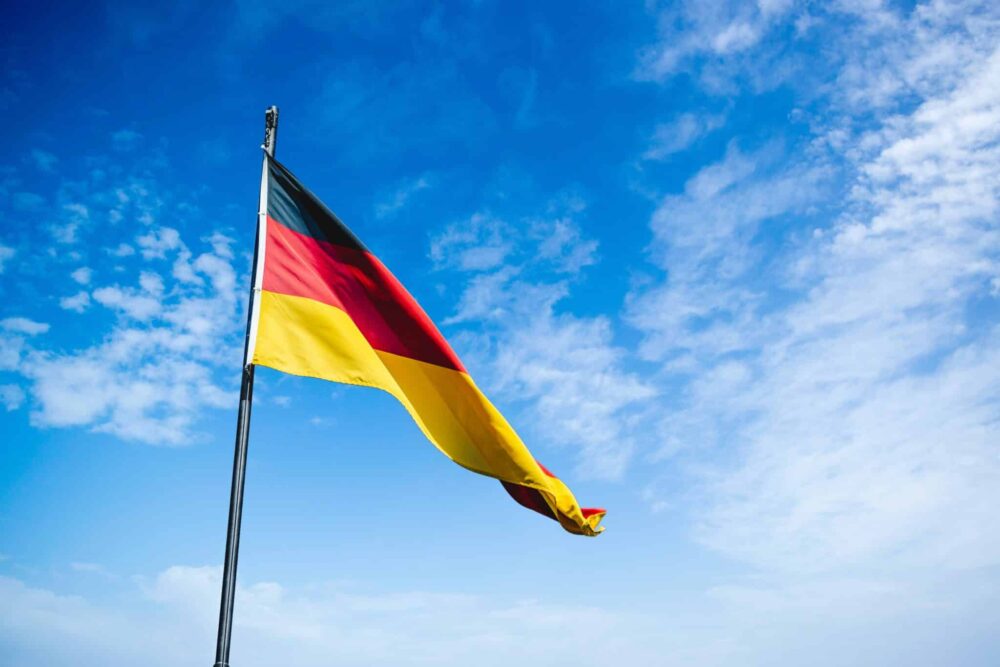A new regulatory step: Germany begins to affix tax stamps to THC-free hemp flowers. This measure marks a turning point in the recognition and supervision of non-psychotropic hemp on the legal market, offering distributors and consumers a clearer framework.
CBD flowers now taxed in Germany
A German company, Sanaleo, has just made history by marketing THC-free CBD hemp flowers, subject to the same tax regime as tobacco products - a first in the country.
Rather than being classified as narcotics under the German Cannabis Act (KCanG), these products are now recognized as ordinary consumer goods. This decision marks a major change in the regulatory approach: low-THC hemp is no longer a criminal offence, but a legal, regulated market.
The tax stamp is not just a victory for the company, but a major step forward for the entire sector. This move, welcomed by the industry, proves that legal, transparent and secure marketing of hemp flowers is possible in Germany.
The company guarantees that its products are THC-free, in compliance with current regulations.
From forbidden status to legal recognition
In the past, even CBD flowers with less than 0.3% THC risked being seized by German customs, due to a strict interpretation of the law: the famous "intoxication clause". This was based on the principle that, even in very large quantities, hemp could theoretically be used for recreational purposes. The result: frequent border blockages and legal uncertainty for traders.
But those days seem to be coming to an end. German customs authorities have begun to affix tax stamps to 0.0% THC products, considering them no longer to be cannabis, but legally marketable goods. This development marks a turning point in the perception of CBD in Germany.
According to BvCW (German Hemp Association), this legal clarification provides an essential basis of security for companies and promotes economic growth in the sector. The issuing of tax stamps brings in more tax revenue and greater legal certainty.
A great step forward that benefits everyone: consumers, CBD entrepreneurs and tax authorities.
Behind the scenes of a legislative change
This regulatory breakthrough is the fruit of several years of hard-fought efforts by industry players. At the forefront is Weedo, a German company committed to the defense of CBD, which in November 2024 obtained a favorable ruling from the Düsseldorf Finance Court. The Court recognized that THC-free hemp flowers should benefit from a tax stamp - although the decision is still under appeal to the Federal Finance Court.
This legal victory accelerated the evolution of the legal framework. Nevertheless, the BvCW is continuing its fight to extend taxation to flowers containing up to 0.3% THC, a limit that arbitrarily demarcates industrial hemp and recreational cannabis in many European countries.
Between progress and contradictions: a still fragmented regulatory landscape
Despite legal breakthroughs and the first tax stamps issued, uncertainty persists in the field. The Directorate General of Customs has hinted that it may continue to rely on old, restrictive interpretations of the legislation, thus maintaining uncertainty for companies operating outside the Bielefeld region.
Another stumbling block is the famous "intoxication clause", still in force after the failure of the hemp law reform. Although several jurisdictions, including the regional court of Fribourg, have ruled that hemp low in THC cannot be assimilated to cannabis in the criminal sense, this clause continues to hinder the standardization of the market. Its retention could even run counter to the principle of free movement of goods in Europe.
Conclusion: A new lease of life for hemp in Germany
The introduction of tax stamps for 0.0% THC hemp flowers marks a historic step forward in the regulation of CBD in Germany. Thanks to the joint efforts of players such as Sanaleo, Weedo, and the BvCW, the industry is taking a step towards clearer recognition of its products as legitimate consumer goods, outside the criminal spectrum.
However, despite this breakthrough, the regulatory landscape remains uneven. Between favorable court rulings, regional administrative inconsistencies and the persistence of the intoxication clause, companies still have to navigate a sometimes vague and unpredictable legal environment.
Despite this, the turnaround paves the way for a more structured future for hemp in Germany - a growing sector that is eager to flourish within a stable, fair framework based on science rather than preconceived ideas.
🌿 Hemp now has one foot in the fiscal legal mainstream. All that remains is to establish a coherent regulatory framework at national... and European level.









